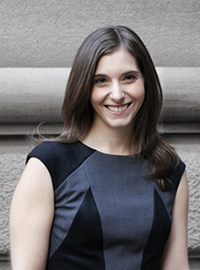Find a CBT Therapist
Search through our directory of local clinicians.
Rachel Hutt

Featured Therapist Interview
Dr. Rachel Hutt is Co-Founder of MindWell NYC, a group private practice located in the Chelsea neighborhood in Manhattan, New York. She provides individual and group therapy to children, adolescents, and young adults with anxiety, depression, and behavioral challenges, as well as emotion dysregulation, Borderline Personality Disorder, and PTSD. She also specializes in parent coaching/parent management training. She is Board Certified in DBT through the Linehan Board of Certification (DBT-LBC™), trained in Mindfulness-Based Cognitive Therapy, and is the author of “Feeling Better: CBT Workbook for Teens.”
MindWell NYC provides CBT and comprehensive DBT for children, adolescents, and adults. It also offers Acceptance and Commitment Therapy, the Daring Way program based on the work of Brene Brown, and Virtual Reality Therapy to treat various phobias.
Dr. Hutt earned her M.S. and Ph.D. in Clinical Psychology from Pennsylvania State University, where she trained in outpatient clinics, schools, and research settings. She received her B.S. from Cornell University in Human Development. Dr. Hutt completed her pre-doctoral clinical internship at Westchester Jewish Community Services, and her postdoctoral fellowship at CBT/DBT Associates. She participated in a multidisciplinary DBT consultation team and provided individual and group DBT to adolescents, young adults, and adults. Dr. Hutt additionally gained expertise in the delivery of cognitive behavioral therapy for anxiety disorders and depressive disorders, as well as PTSD. For more about her practice, see www.mindwellnyc.com
First, we would like to know a little about your practice.
What are your personal strengths as a practitioner?
I am very fortunate to have had a very diverse range of training. I was in a child clinical psychology graduate program, so my background is working with children and adolescents. Through that work, I also was extensively trained in working with parents. I sought out additional adult training, and began doing individual therapy with adults as well. I have also been trained in a variety of evidence-based treatments for behavioral challenges, depression, anxiety, PTSD, emotion regulation challenges, and BPD. Because my training was heavily research-based I truly bring the scientist-practitioner model to my clinical work. I continue to keep myself updated on the latest clinical research, and I am able to integrate new types of therapy as I get additional training. I am able to take evidence-based treatments and flexibly implement them with each individual based on their unique presenting challenges.
What “tips” can you offer to colleagues just opening a practice?
It is very important to spend time thinking about your ideal client and population. Although you may be tempted to take anyone who is willing to see you at first, that can lead to burnout and stress much more quickly. It will also help you with branding and marketing, and will help you carve out a niche early.
How do you remind your patients of their strengths during the therapy process?
Each week I try to start out with my clients by reviewing the skills that they have used during the past week, whether intentional or not. I also work with them to see any progress, especially small steps that may not even be within their awareness. We discuss ways they have already incorporated our work and are using strategies more automatically as well.
Are you involved in other types of professional activities in addition to your private practice?
I currently supervise a postdoctoral fellow in our practice, and I have also supervised graduate students in several different programs in NYC. I enjoy teaching and have taught a graduate-level CBT course, and I occasionally do guest lectures for different graduate and undergraduate classes in NYC. Given my interest in mindfulness-based therapies, I have also been involved in a professional mindfulness sangha consisting of local practitioners implementing Mindfulness-Based Cognitive Therapy and other mindfulness-informed treatments.
We would also like to know a little about you personally.
Who was your mentor?
In graduate school I worked with Dr. Ginger Moore, who greatly assisted me in understanding the importance of research informing clinical work. On my internship my director of training was Dr. Leslie Bogen, who significantly helped develop my clinical interests and professional goals.
When not practicing CBT, what do you do for fun?
I enjoy spending time with my husband and daughter who give me so much joy and laughter. I also enjoy doing yoga and mindfulness, hiking and spending time in nature, and seeing friends and family.
We are also interested in some of your views of CBT.
What do you think is the single most important thing CBT can do for your clients?
I always tell my clients that I want them to learn these skills and strategies so that they no longer need me. I love that the goal of CBT is to teach my clients ways to help themselves to make myself obsolete.
Finally, we would like to know your opinions about ABCT.
How long have you been a member of ABCT?
I joined during my postdoctoral fellowship year and have attended the annual meeting and continued my membership ever since.
How has ABCT helped you professionally?
I enjoy attending the annual conference to keep up to date on research and attend new clinical trainings. I also enjoy meeting other professionals and expanding my network. It has helped me get connected with practitioners in other cities and states when we need referrals, or are looking for new clinicians to join our practice.
What services do you consider the most valuable from ABCT?
I really appreciate the list serve and some of the useful topics that have been discussed, as well as the annual meeting.
Thank you very much for taking the time to answer our questions!
